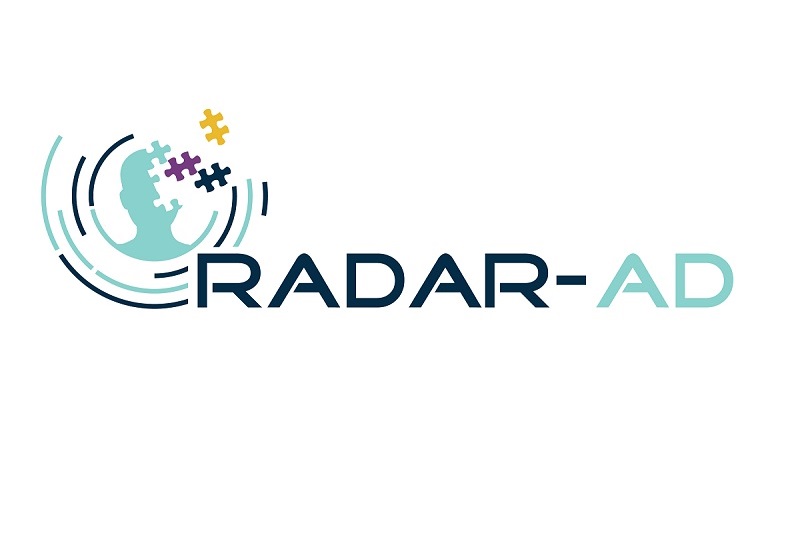On the 22nd of October the RADAR-AD participating clinical center in Stavanger (Norway) included the 100th participant in the study! RADAR-AD participants share that they are happy to participate in the clinical study: they find the cognitive tasks challenging but also fun since they feel like a “brain training” for them. The RADAR-AD consortium is proud to report a low drop-out rate and high number of participants who have completed their participation in the study.
Currently, the RADAR-AD clinical study has included 100 participants across all participating clinical centers. 77 RADAR-AD participant have completed their participation in the study and 6 have dropped out because of unrelated illness of either participant or study partner. An overview of the inclusions per participating clinical center is found below:
- The Netherlands: Amsterdam – 36
- The UK: London – 5, Oxford – 5
- Greece: Thessaloniki – 8
- Romania: Bucharest – 2
- Portugal: Lisbon – 11
- Germany: Mannheim – 3
- Spain: Barcelona – 14
- Norway: Stavanger – 16
A list of all European participating clinical centers in the RADAR-AD study is available here.
Experiences with the study
Overall, RADAR-AD participants share that they are happy to participate in the clinical study. Most participants take part in it because they know someone who has Alzheimer’s disease or have Alzheimer’s disease themselves, and they want to help in the search for a cure. The participants particularly like that they receive a Fitbit for the duration of the study. Some of them share that they would like to buy one for themselves when the study is over. Moreover, the daily cognitive tasks can be challenging, especially for those with cognitive impairment. However, the tasks are also fun and feel like ‘brain training’ for them.
Marijn Muurling, PhD student at the Alzheimer Center Amsterdam (Amsterdam UMC) shares her observations: “RADAR-AD is a really cool study. I have the feeling that you really get to know the participants, since you follow them over an 8-week period with multiple contact moments. The user experience is very important in this study, and therefore we call the participants every 2-weeks to ask for their feedback and experiences. This makes the study ‘personal’. We monitor if the data is coming in as expected. Although it can be quite annoying for the participants if they get contacted every week and are asked to synchronize their apps again, I think this is really important to keep the data quality as high as possible. Overall, compliance is high. We only had 6 drop-outs out of 100 participants, and this was mainly because of unrelated illness of either participant or study partner.”
The RADAR-AD study
The goal of RADAR-AD is the development and validation of technology-enabled, quantitative and sensitive measures of functional decline in people with early stage Alzheimer’s disease. To achieve this goal, the RADAD-AD consortium has set up three studies. The first and main one comprises the setting up of wearable devices at the time when participants visit the clinic. This study is executed across all participating European clinical sites.
Study setup and performed tests
The duration of the data collection period is 8 weeks for each participant. In this period, study participants visit their local clinical site twice. The first clinical visit is the baseline visit. During this visit, there are standard tests performed such as a neuropsychological examination and physical assessment tests. At this time participants are also asked questions about their social behaviour and activities of daily living. In addition to that, researchers are inquiring into the mood, sleep and physical exercise of the participants. They also ask questions about participants’ everyday cognition and assess their memory, linguistic and planning skills and thinking abilities in general.
Applications and devices
After the tests have been performed, RADAR-AD researchers move to install the applications used in the RADAR-AD study and hand out two activity trackers that participants will be using in the next two months.
Remote assessment and final visit
When participants have finished their first visit in the hospital – the baseline visit, they head home for a two-month long remote assessment when they would actively use the apps and devices they received from the researchers. In the meantime, RADAR-AD researchers keep in touch with the participants every other week. They call participants to ask what their experience of the use of devices and apps is and if there are any technical issues or complaints that need to be addressed. The two-month period ends with an end-of-study-visit, in which the participant visits the clinic to hand in all the devices used and uninstall the apps.
This article was originally posted on: https://www.radar-ad.org/newsroom/radar-ad-includes-100th-participant-clinical-study

